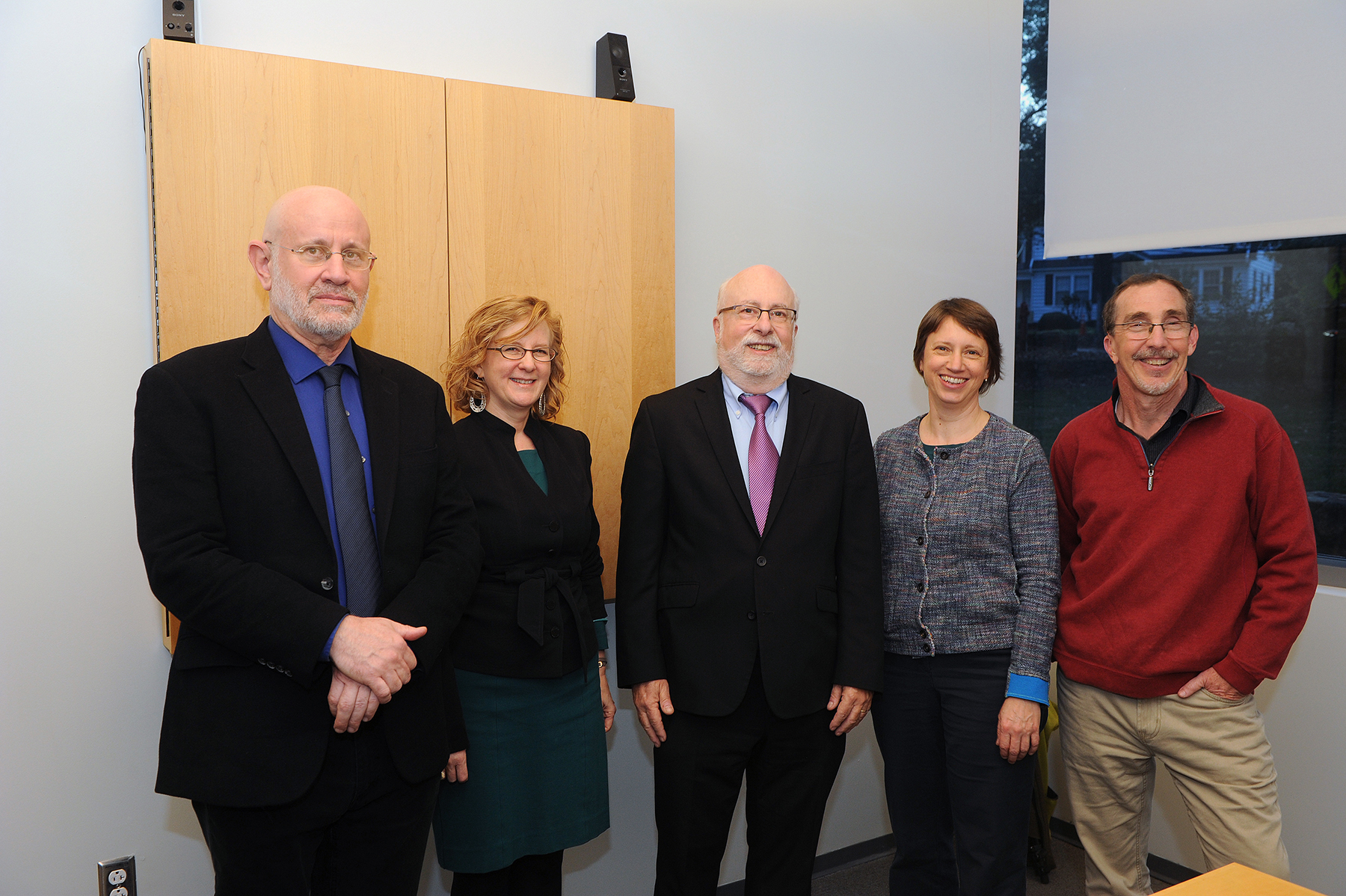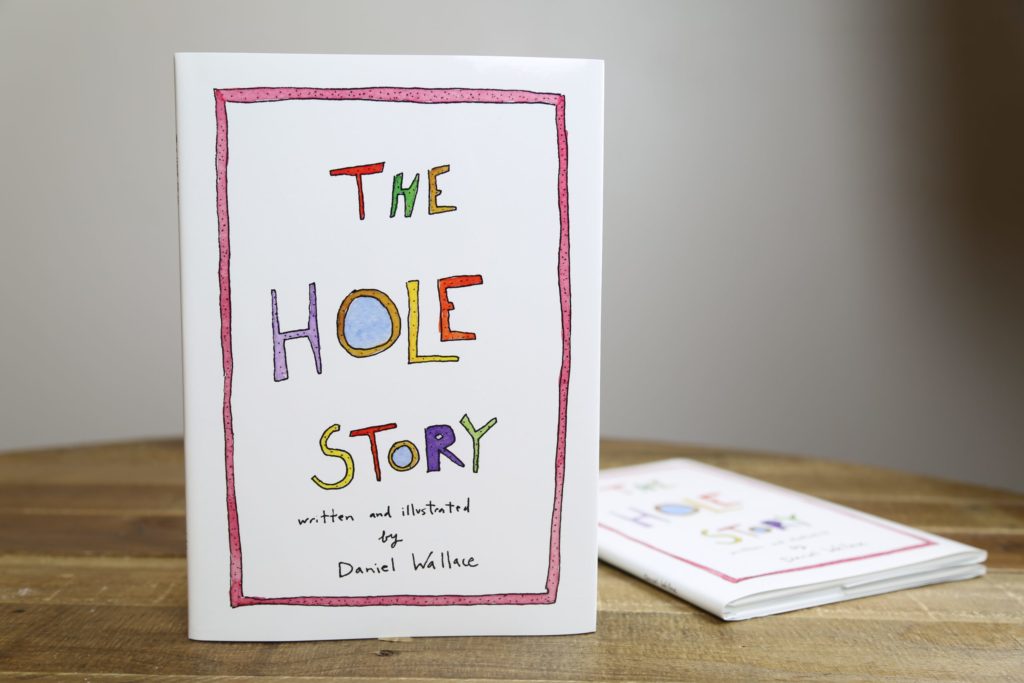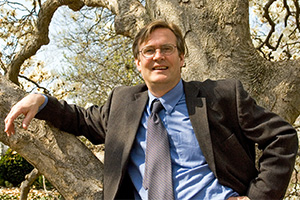
“Hate has been around for as long as human beings have existed. We’ve always had this capacity to define and vilify another … [yet] we don’t look at hate the same way that we do other feelings that are part of the human condition,” Kenneth Stern, director of the Center for the Study of Hate at Bard College, told an audience Nov. 7 in the signature lecture of the College of Arts & Sciences’ Countering Hate: Overcoming Fear of Differences initiative.
Citing evolutionary psychology and neuroscientific studies, Stern said, “We’re programmed to see the world in an ‘us versus them’ fashion as a natural part of the human condition.”
Only a handful of hate studies centers and institutes currently exist. Stern defined hate studies as “Inquiries into the human capacity to define, and then dehumanize or demonize, an ‘other,’ and the processes which inform and give expression to, or can curtail, control, or combat, that capacity.”
Until we recognize and understand hate and its many manifestations, we cannot hope to address it, he said. Bard College’s center, established in 2018, is looking at the issue from all sides, from psychology and neuroscience to anthropology and economics, said Stern. (As an example of the diversity of disciplines involved, one Bard professor is developing an “economic cost of hate index,” Stern said.)
Stern’s talk was titled, “Antisemitism as a Form of Hate,” and after providing an overview of hate studies, he moved to the specifics of hatred aimed at Jews.

“What is antisemitism at its heart? It’s conspiracy theories about Jews — about Jews trying to harm non-Jews,” said Stern. The second component of antisemitism is that the person holding this view believes that it provides an explanation for something wrong in the world, he said. Those who commit atrocities like the mass shootings at synagogues in Pittsburgh and Southern California in 2018 and 2019 believe they are committing noble acts of self-defense, he said.
Stern is one of the nation’s leading authorities on antisemitism. For 25 years he was the American Jewish Committee’s expert on the subject. He was the lead drafter of the “Working Definition of Antisemitism,” later adopted by the U.S. State Department.
He has argued before the U.S. Supreme Court and testified before Congress. He was an invited presenter at the White House Conference on Hate Crimes and an official member of the U.S. delegation to the Stockholm International Forum on Combating Intolerance. He was also part of the defense team in the historic Holocaust denial case of David Irving vs. Deborah Lipstadt.
Too often, communities will dismiss antisemitic acts like vandalism of synagogues or Swastika graffiti as hooliganism, Stern said. But “terming them as such is a way to render antisemitism invisible.”
In closing, Stern said that his chief concern was that we are living in a time of the erosion of our democratic infrastructure. “I’m a firm believer that a strong democracy is necessary for best combating hatred.”
As with regular infrastructure, you often can’t see the corrosion until something crumbles: “As concerned as I am about antisemitism, I have more concern for the attacks on Muslims and immigrants because that helps create this ‘us versus them’ dynamic” that leads to mass acts of violence, he said.
The College’s Countering Hate initiative was launched earlier this fall under Interim Dean Terry Rhodes to explore issues of intolerance, including antisemitism, Islamophobia and racism.
UNC Global and the Gillings School of Global Public Health joined the College in co-sponsoring the Stern lecture. Other co-sponsors of the Countering Hate initiative are the Carolina Center for Jewish Studies, the Center for European Studies and the Center for Middle East and Islamic Studies.
On Wednesday, Nov. 13, the Countering Hate initiative is sponsoring a talk, “Painful Hope: An Israeli Settler and Palestinian Activist in Dialogue,” at 7 p.m. in Dey Hall’s Toy Lounge. The speakers will present the successes and challenges of their groundbreaking grassroots organization, Roots: A Local Palestinian Israeli Initiative for Understanding, Nonviolence and Transformation.
More events are being planned for the spring semester and will be added to the Countering Hate website as details become available. The College also hopes to offer a joint teaching initiative in the spring to foster an in-depth look at issues of intolerance.
By Geneva Collins




